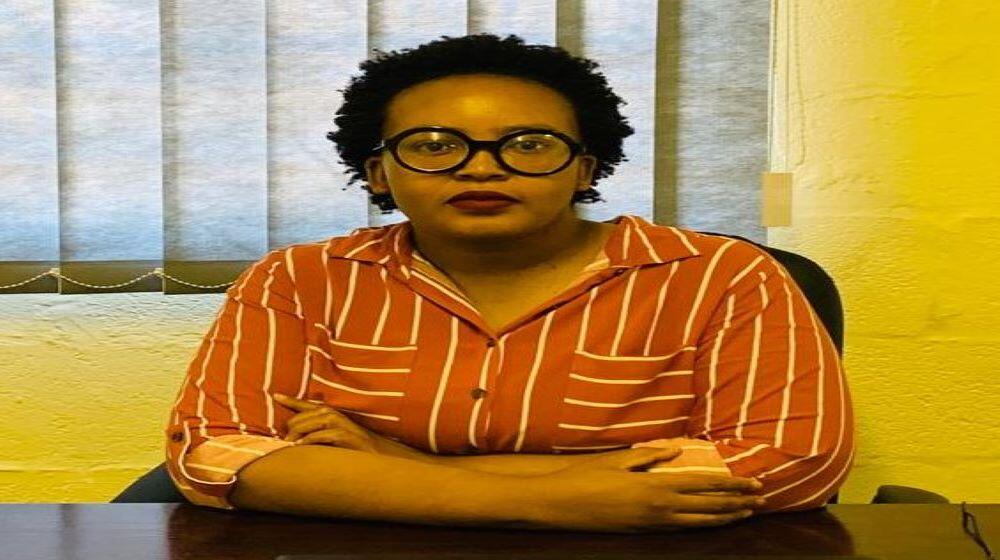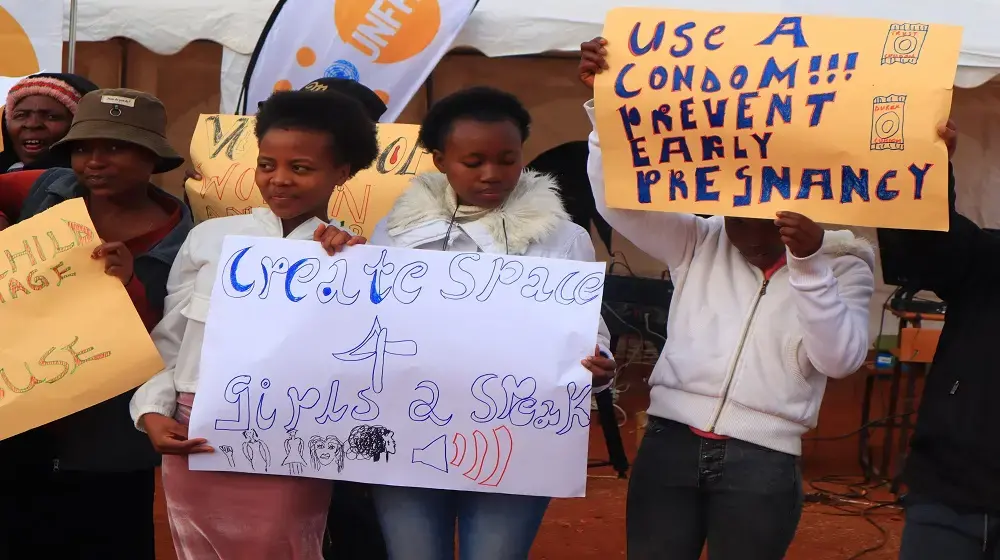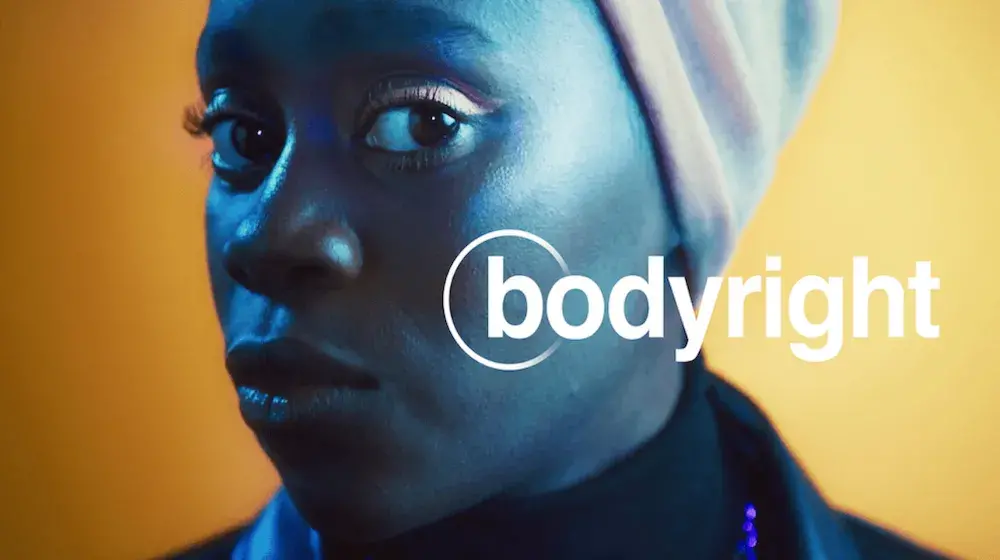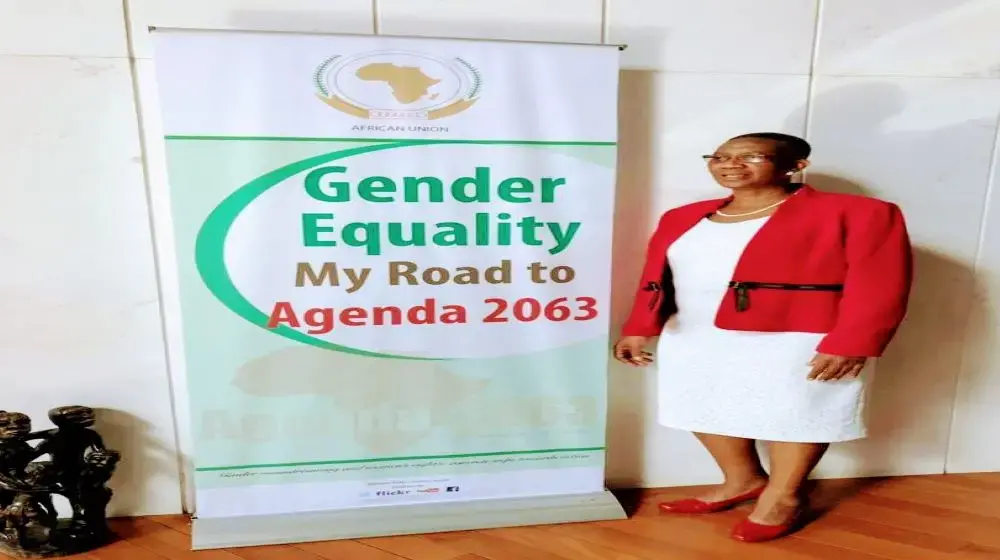Have you ever connected or related lipsticks with story-telling publications? Well, Thakane Shale - “a young woman based in Lesotho and who loves words, women and wine,” has done exactly that. Thakane is a lawyer, writer and also an owner of Lipsticks and Scars Publishing House. She links lipsticks with people, particularly women controlling and and putting forth their own narrative, as African women told by themselves and portraying Africa through African eyes. She is passionate about these and is very excited about its growth.
Her publishing house publishes books and other forms of print media. In imploring the readership to appreciate other ways of story-telling says,
“But there are other ways to tell a story that is not in a book so we are slowly venturing into that. Especially now that most people consume media digitally. At the end of the day what we want is to tell stories and we will tell those stories in a way that is accessible. So, we publish, write and if you are looking for something lighter there is even a blog about my dating misadventures on our site.
As a writer, Thakane Shale’s greatest achievement has been seeing her name and face on under some publication she had written for a regional paper. “I still have the clipping. I had always had opinions but I did not know it was something people would take seriously enough to pay me for,” she says.
But back to Lipsticks.
What could have prompted the name Lipsticks and Scars? Thakane explains, “A few years back I had a personal finance blog called Lipsticks and Cents. The lipsticks’ part was because it was aimed at women. So when
I evolved from finance, which I turned out not to be passionate about I had to remove cents so I chose scars, I have not actually delved into why scars but it fit in nicely. She thinks
Talking about her future plans for her project , Thakane notes it is not enough to keep producing stories if they do not get to readers that they are intended for. So, her very next project is to take not only stories that Lipsticks and Scars is a part of, but all books that advance a certain narrative about Africa including Lesotho to the most rural parts of the country so that every child growing up can see themselves represented in literature. “We are also currently producing a show called “Words and Wine” with Mathoatsi Sekoere. (Me being a lover of wine of course). Other than that, we will evolve as we go but at heart, we will keep advancing our own narrative.” She announces
This year UNFPA, the United Nations Population Fund’s annual flagship report – the State of the World Population Report (2021) focused on bodily autonomy. Through this ground-breaking report, UNFPA is measuring both women’s power to make their own decisions about their bodies and the extent to which a country's laws support or interfere with a woman’s right to make these decisions. The data show a strong link between decision-making power and higher levels of education and that in countries where data is available.
- 55 per cent of women are fully empowered to make choices over health care, contraception and the ability to say yes or no to sex;
- 71 per cent of countries guarantee access to overall maternity care;
- 75 per cent of countries legally ensure full, equal access to contraception;
- OAbout 80 per cent of countries have laws supporting sexual health and well-being, and
- About 56 per cent of countries have laws and policies supporting comprehensive sexuality education.
Asked about her views on bodily autonomy, she first refers to UNFPA Executive Director Dr. Natalia Kanem’s observation that hundreds of millions of women and girls do not own their own bodies and their lives are governed by others. Thakane assertively charges that she does not even understand why it is a debate. “That one cannot fully own their body and do with it as they please seem to me the most ridiculous notion in the world,” she says.
AHer opinion on Gender Based Violence in Lesotho (GBV), is that the country still has a long way to go; especially in educating women of their worth in terms of them leaving abusive situations at the first sign, articulating her concern. Saying “I worry that we spent so much time teaching men not to hit women when we should be raising women who would not even dream of staying past the first sign of trouble.” On this issue Thakane’s message to women in Lesotho is that they deserve love without necessarily being “good”. This assertive Mosotho woman motivates fellow women in the utterances “I have always felt that women believe they have to earn love by stifling parts of themselves that they feel do not confirm to societal expectations of them. Most importantly your body and your life belong to you”
Thakane believes what has shaped her into the person that she is today is sharing that moment of life-defining change stating that there are a series of moments.
“As far as I can remember, there have always been moments where the way things were done in the world made me uncomfortable. The way women were spoken off in popular culture. The way certain things were expected of me and not my male cousins just because I was a girl. It was a series of moments really.”
Her biggest challenge in life has been at the time when she was depressed and suicidal. She recollects. “In fact, I attempted ending my life, as I believed I should have achieved certain things because I was a certain age.” Fortunately she has overcome that now and positively realises,
“To get out of that place where I was putting deadlines on my life was the hardest and yet most fulfilling thing I have ever done.” Now her greatest philosophy in life is “to be the self that she is; and not be apprehensive about being likeable. and not be apprehensive about being likeable. Stressing this personal experience-driven philosophy Thakane says. I have no idea where it comes from but maybe because I have seen the unhappiness that comes from constantly trying to be likeable.”
Therefore in the next 10 years She aspires to see herself travelling travel all of Africa; perhaps acquiring a PhD, and maybe a husband or two along the way.. “Most importantly I hope I will be happy and fulfilled.” She says
Thakane Rethabile Shale’s best memory from childhood is Sunday mornings with her Dad reading the BOBO comic strip to her. “I think it used to be in You Magazine. Sadly, My Dad has since passed on.” In the meantime, during her spare time she reads and talks. Summing it all up is her character-revealing statement “God I can talk. I just love words honestly, other people’s, mine. Words, words and more words.”





